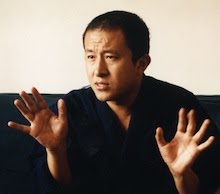You may have noted – may even have pitied – the vehemence with which I wrote ‘But I said that first.’ I, the insistent, emphatic, italicized me. The I to which I am brutishly attached, the I that must be farewelled. And yet this I, or even its daily unitalicized shadow, is not what I think of it as. Around the time I was assuring the college chaplain that I was a happy atheist, there was a fashionable phrase: the integrity of the personality. This is what, amateurs of our own existence, we believe in, don’t we? That the child is father, or mother, to the man, or woman; that slowly but inevitably we become ourselves, and that this self will have an outline, a clarity, an identifiability, an integrity. Through life we construct and achieve a unique character, one in which we hope to be allowed to die.But the brain mappers who have penetrated our cerebral secrets, who lay it all out in vivid colours, who can follow the pulsings of thought and emotion, tell us that there is no one at home. There is no ghost in the machine. The brain, as one neuropsychologist puts it, is no more or less than ‘a lump of meat’ (not what I call meat – but then I am unsound on offal). I, or even I, do not produce thoughts; thoughts produce me. The brain mappers, peer and pore as they may, can only conclude ‘there is no “self-stuff” to be located’. And so our notion of a persisting self or ego or I or I – let alone a locatable one – is another illusion we live by. Ego Theory – on which we have survived so long and so naturally – is better replaced by Bundle Theory. The notion of the central submarine captain, the organizer in charge of the events of his or her life, must surrender to the notion that we are a mere sequence of brain events, bound together by certain causal connections. To put it in a final and disheartening (if literary) way: that ‘I’ of which we are so fond properly exists only in grammar.
Monday, March 30, 2009
Nothing To Be Frightened Of
As we reflect on the Four Noble Truths, impermanence, and the nature of life and death, I'd like to recommend "Nothing To Be Frightened Of", a book by the English novelist Julian Barnes (author of ten novels including "Arthur & George", "Flaubert's Parrot", "A History of the World in 10 1/2 Chapters" and "England, England"). It's a reflection on death and religious belief, with frequent comparisons between his own views (as an artist and novelist) and those of his brother (a distinguished professor of philosophy, and specialist in the ancient Greek philosophers). It's a lovely read in itself, but all the more remarkable for the way that he comes across Buddhist truths without any Buddhist background of his own (his family are non-practicing Christians).
Here's an extended quotation from the book, which is almost "pure" dharma:
Subscribe to:
Post Comments (Atom)
.jpg)
.jpg)
No comments:
Post a Comment